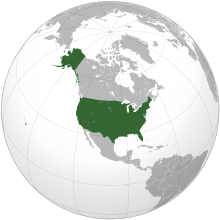The Reasons Behind Anti-Americanism – OpEd
By Arab News
By Osama Al Sharif
Pundits all over the world are scrambling to explain the recent wave of anti-Americanism that has swept most of the Arab and Muslim worlds in reaction to an anti-Islam video, allegedly produced by a bigoted Coptic Christian living in the United States. The deadly protests have claimed the lives of four American diplomats in Libya, including Ambassador Christopher Stevens, in addition to tens of protesters who died in clashes with local security personnel in various Arab and Muslim capitals.

The violence has subsided, for now, but US commentators agree that the crisis is far from over and that it has forced itself as the biggest foreign policy challenge to President Obama in an election year with less than two months to go before Americans head to the polls. Most pundits agree that the wave of anti-American protests, the first since the eruption of the Arab Spring less than two years ago, is not really about a YouTube video; a 14-minute trailer for a film entitled “The Innocence of Muslims”, that was posted online more than three months ago, but only attracted public attention recently.
Conversely, the public outrage is multifaceted; a reflection of the uneasy state of transition, with all its contradictions, that is taking place in the Arab world. The anti-Islam video was the spark, as good as any, that reignited buried anti-American emotions. Writing in The New York Times this week, columnist Ross Douthat says “…that anti-Americanism remains a potent rallying point for popular discontent in the Islamic world.” He adds that “what we are witnessing, instead, is mostly an exercise in old-fashioned power politics, with a stone-dumb video as a pretext for violence that would have been unleashed on some other excuse.”
This “autumn of unrest”, as he describes it, underlines the reality that is taking place in post-revolution Libya, Tunisia, Egypt and Yemen. It’s about power struggle between various forces within society; between secular and moderate Islamists and between the latter and the more radical factions, including Al-Qaeda and those who sympathize with its anti-Western doctrines.
Those in America who criticize President Obama for backing the Arab Spring or for not doing enough to stop the rise of Islamist forces to power fail tounderstand such realities. The Arab Spring would have taken place whether America backed it or not. The election of Islamist parties and candidates in Arab Spring countries was not a spontaneous reaction that could have been stemmed; it would have happened anyway as a result of decades of inferior political policies, both locally and regionally.
It is fair to say that the unfavorable view of America in the Arab and Muslim worlds has to do with Washington’s foreign policy, especially in relation to Israel, and is driven by its unpopular wars in Iraq and Afghanistan, its indiscriminate killing of Muslims by unmanned drones and others. But this is only part of it. In reality Muslims have for long been divided in their perception of the United States.
A Pew opinion poll, conducted in June, found that Tunisians are generally divided in their views of the United States. Overall, they are split evenly between those with a favorable view of the US (45 percent) and those with an unfavorable view (45 percent). But the picture is different in Pakistan, where 74 percent consider the US an enemy, and in Yemen, recipient of more American humanitarian assistance than any other country, where anti-Americanism is rife.
According to political scientists Lisa Blaydes and Drew Linzer, in an article published in the American Political Science Review recently, “anti-American sentiment is primarily concocted by political elites who try to ideologically ‘outbid’ each other in their quest for votes.” They continue that “we trace the source of Muslim anti-Americanism to the intensity of domestic political competition between a country’s Islamist and secular-national factions…Where the struggle for political control between these two groups escalates, elites of both types have incentives to ramp up anti-American appeals to boost mass support.”
Anti-Americanism in the Arab and Muslim worlds is not a new phenomenon. It had existed in all Arab Spring countries even before the revolutions. It is tied to US policies in the region and its historical stance on controversial issues such as Israel, but it is not necessarily tied to Islam. Most Arab secular and nationalist movements are traditionally anti-American as well. And in conservative Gulf countries polls show a more favorable perception of the United States.
It must be shocking to many Americans that anti-American sentiments remain high in Arab Spring countries, where the US chose to stand by popular anti-regime protests and where it intervened militarily in support of the Libyan revolution. These countries remain in a state of transition and power struggle is raging between moderate and radical forces.
Despite generous US aid to Jordan, Egypt and Pakistan, people in these countries harbor unfavorable views of the United States. It tells you something about the dichotomy between foreign aid and social and economic realities and grievances in these countries. Changing negative perceptions will require much more than pouring aid money on these presumptive allies, but it is also tied to overlapping shifts and transformations that are taking place in the region as a whole.
— Osama Al Sharif is a journalist and political commentator based in Amman.
